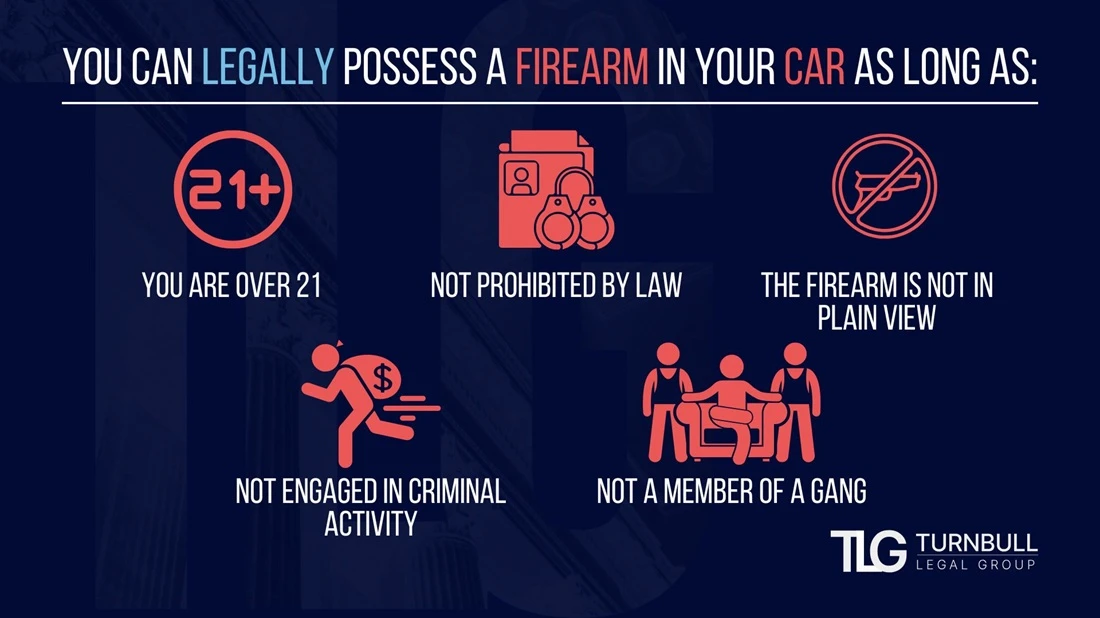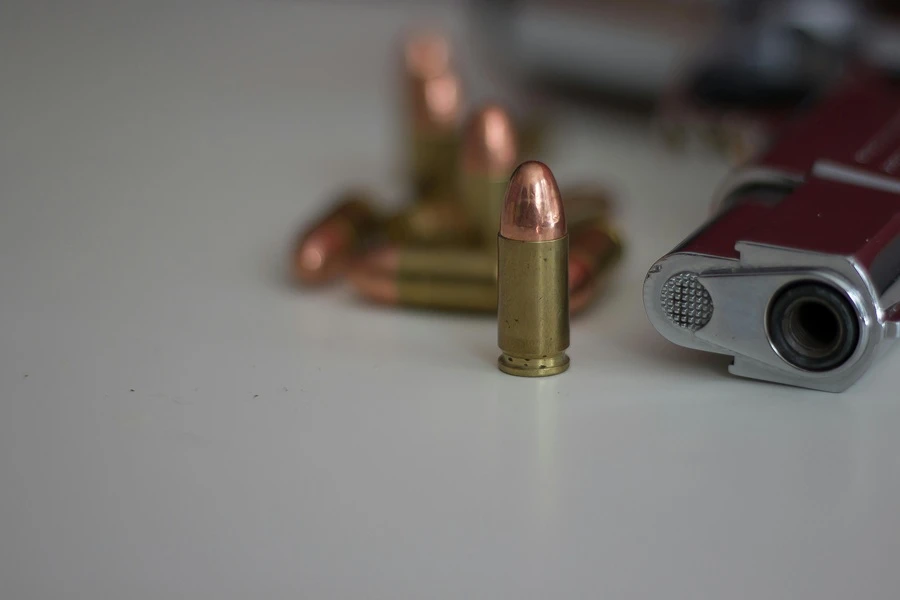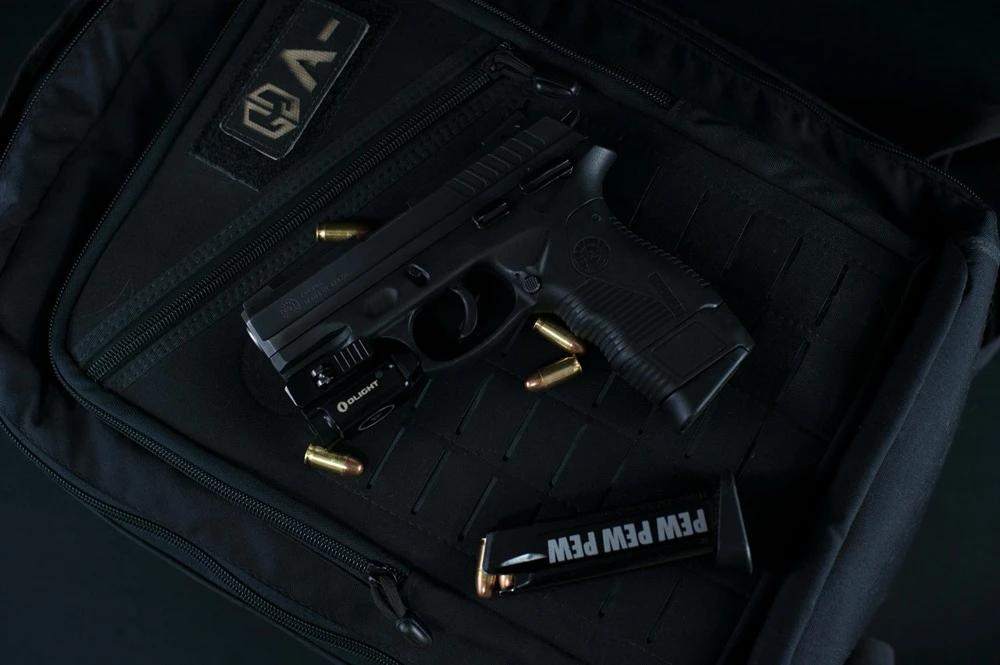In Texas, gun rights are a way of life — but when it comes to carrying a firearm in your car, the laws can be confusing. Can you keep a loaded gun in your glove compartment? Do you need a permit? Could you get into legal trouble if stopped by the police? Many Texans assume they know the rules, only to face unexpected criminal charges. In this article, we’ll break down the laws on carrying a gun in your vehicle, what’s allowed, what could get you arrested, and how to protect your rights.
Texas Gun Laws on Carrying a Firearm in Your Vehicle
Under the Texas Motorist Protection Act, it is generally legal for a law-abiding Texas resident to carry a handgun inside their car without a license to carry (LTC). This law applies to private motor vehicles and allows you to keep a gun in your car for personal protection.
You can legally possess a firearm in your car as long as:
- You are 21 or older (or active military).
- You are not prohibited by law from owning or possessing a firearm (e.g., convicted felons or people under restraining orders are prohibited).
- The firearm is not in plain view unless in a shoulder or belt holster.
- You are not engaged in criminal activity (other than a traffic offense like speeding).
- You are not a member of a criminal gang.

Handguns in Your Car: Open or Concealed Carry?
You can transport a handgun in your vehicle in Texas either:
- Concealed inside the car.
- In plain view, but only if it's inside a shoulder or belt holster.
If your handgun is not in a holster and it’s visible, you could risk legal trouble. Responsible gun owners often use a holster to avoid misunderstandings with law enforcement.
What About Rifles or Long Guns?
Texas law allows you to carry rifles and shotguns in your vehicle without restrictions on how they are carried — loaded or unloaded, in plain view or concealed. No permit is required, but federal law and public safety considerations still apply, especially near school zones or government buildings.
Federal Restrictions and School Zones
While Texas laws allow you to carry a firearm in your car, federal law places restrictions on carrying firearms within 1,000 feet of a school zone unless:
- You are on private property.
- The firearm is unloaded and locked in a container other than the glove compartment or console.
Violating these restrictions can result in federal charges, even if you are otherwise following Texas law.

Do You Need a License to Carry (LTC)?
In Texas, no LTC is required to carry a handgun inside your vehicle. However, obtaining a Texas License to Carry can be beneficial. An LTC allows you to:
- Carry your firearm in additional places under Texas law.
- Reciprocate your right to carry in other states with agreements.
- Streamline law enforcement interactions since officers may view LTC holders as responsible gun owners.
When Carrying a Gun in Your Car Is Illegal
Even in Texas, you can illegally carry a gun in your car if:
- You are prohibited from possessing firearms (convicted felons, domestic violence offenders).
- The firearm is used during the commission of a crime.
- You are under the influence of drugs or alcohol while possessing the firearm.
- You improperly store a gun in plain view without a holster, violating the Texas Penal Code.
Carrying a firearm in these conditions may result in a Class C misdemeanor or more serious criminal charges, depending on the circumstances.
What Should You Do If Pulled Over with a Firearm in Your Car?
If a law enforcement officer pulls you over while you have a firearm in the car:
- Remain calm and keep your hands visible.
- Inform the officer that you have a firearm and specify its location.
- Follow all instructions.
- Provide your LTC if you have one (not required, but helpful).
Stay Legal and Stay Safe: Know Texas Gun Laws
Carrying a gun in your vehicle is a legal right in Texas, but it comes with responsibility. Understanding Texas gun laws, the Texas Motorist Protection Act, and federal restrictions will help you avoid criminal charges and keep you compliant.
If you’re unsure about your rights or facing charges for possessing firearms in Texas, speak with our experienced gun rights defense attorneys immediately. Contact us for a free consultation.




.webp)

